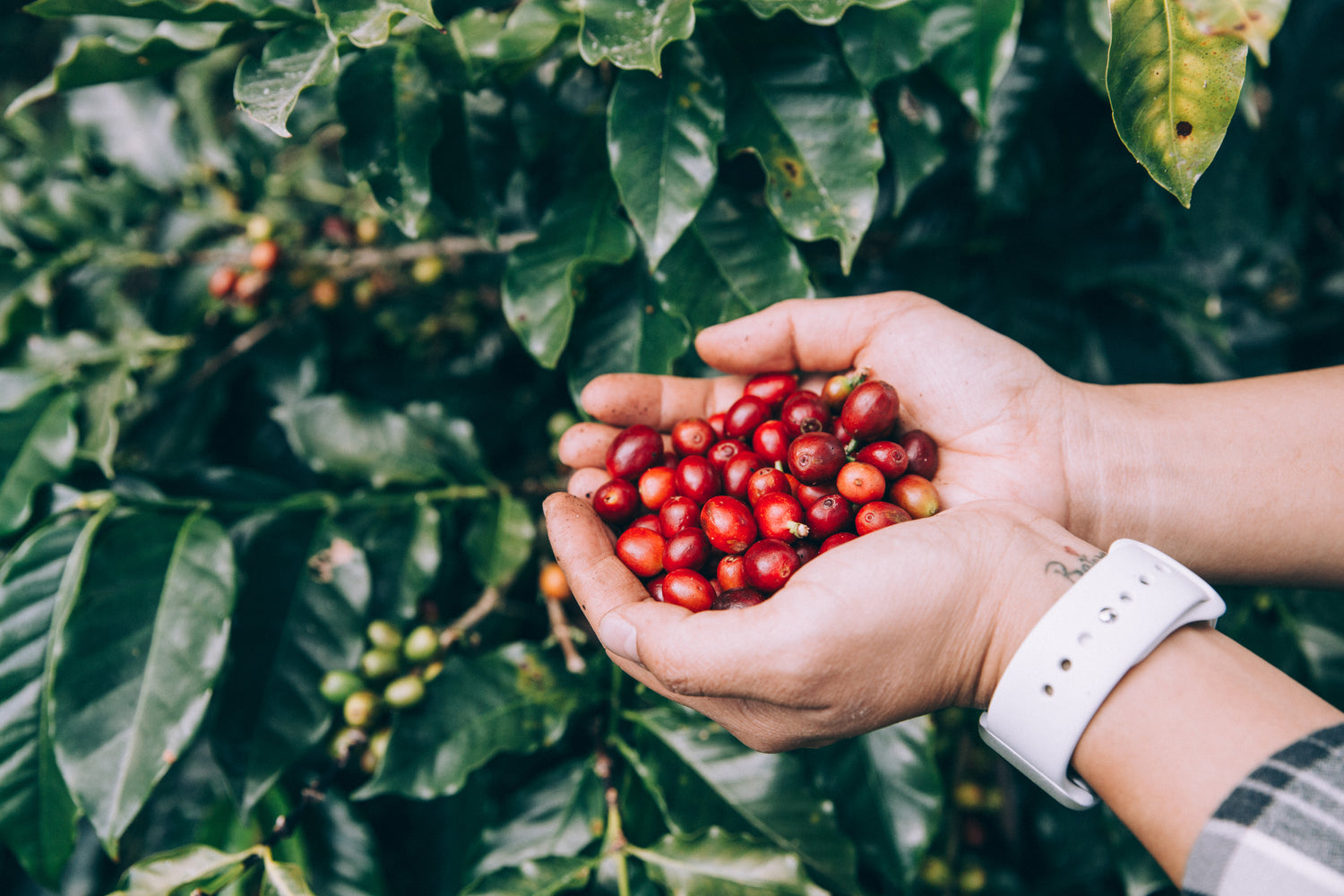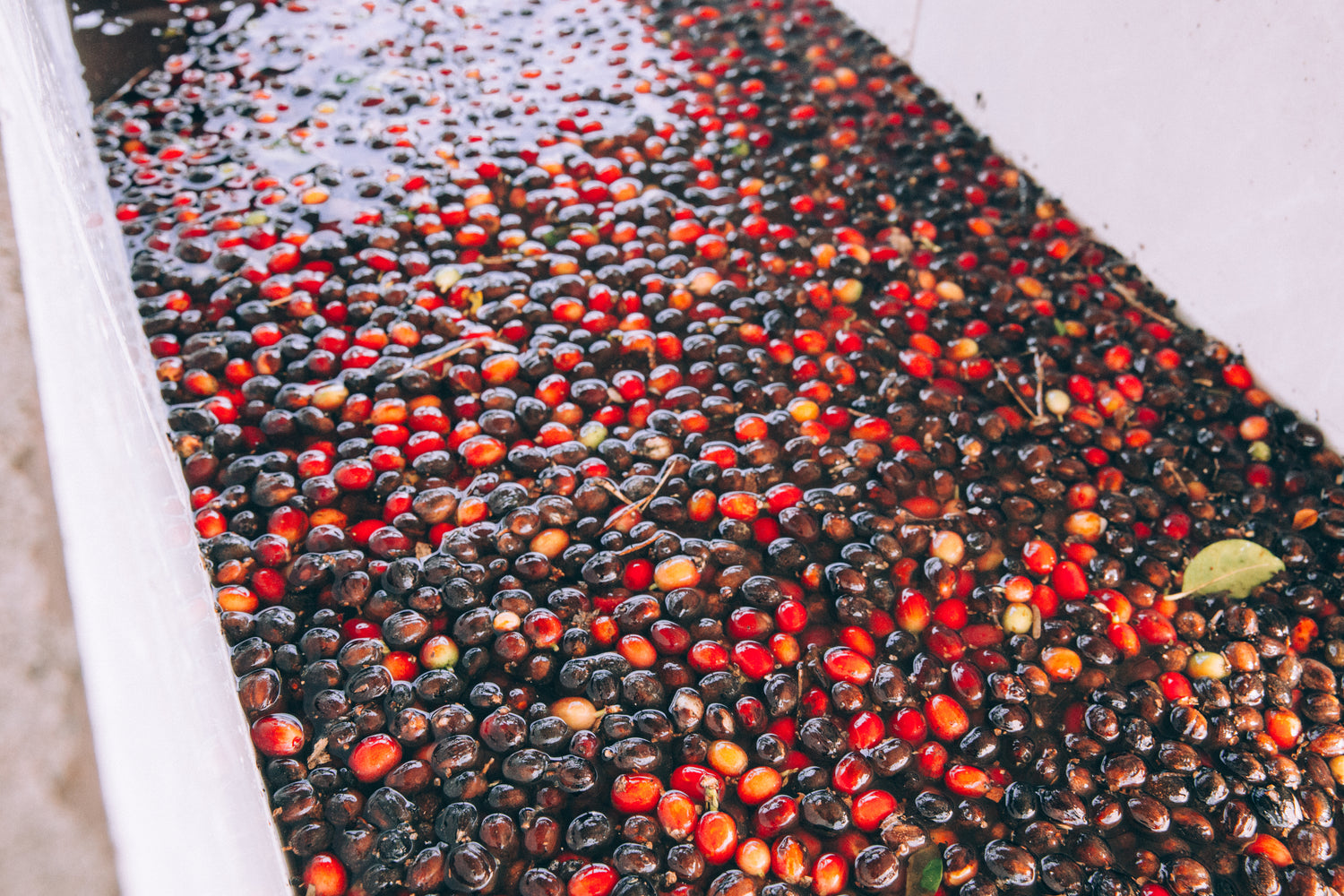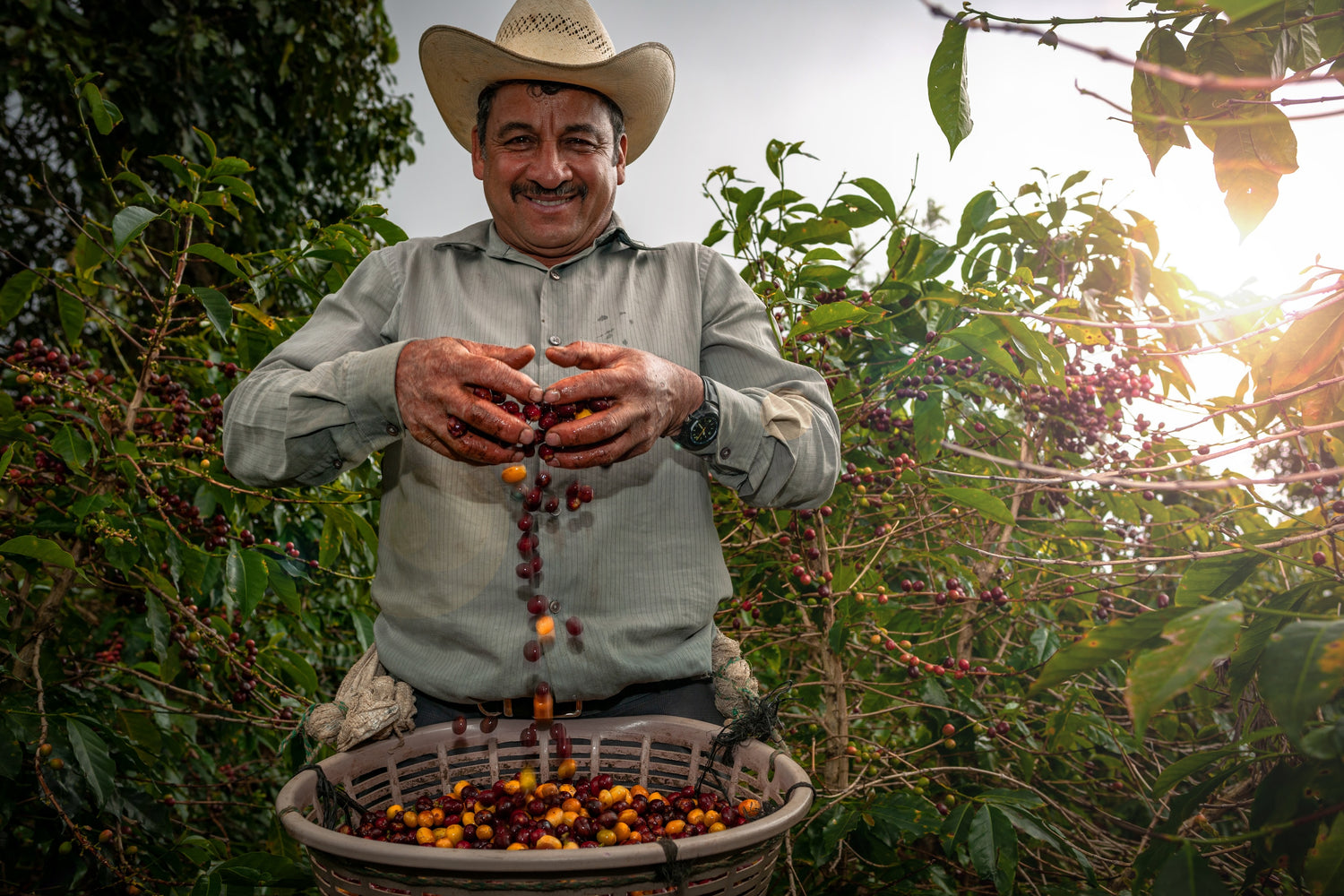
Where does coffee come from?
All Around the World
There are just over 50 nations globally that export coffee that they grow. That may sound like a lot, but coffee actually requires very specific environmental conditions to thrive. The coffee that you consume is almost exclusively grown between the Tropic of Cancer and the Tropic of Capricorn, at an altitude of over 2000 feet above sea level.

How is coffee harvested?
By Hand
Each producing region has a very narrow window of time in which their coffee trees are producing the ripe fruit that the bean comes from. The cherries are most commonly picked by hand. A farmer carefully plucks only the ruby red ripe cherries from the tree. A very efficient farmer may harvest only 100 pounds of coffee in a day, which will only go on to yield just 20 pounds of green coffee beans.

How is coffee processed?
Nature vs. Nurture
There are two primary ways that coffee is processed.
- Natural Process - The coffee cherries are placed out on a variety of different types of beds to naturally ferment and dry. This fermentation process helps break down the mucilage of the cherry which can then be stripped away more easily, rendering the bean accessible.
- Washed Process - This process uses water to ferment and wash away the mucilage of the cherry efficiently. The beans are then left out in the sun to dry.
There are pros and cons to both processes. Natural coffees tend to retain more of their complex flavor compounds but also have a higher likelihood of over fermenting during the process. Washed coffees tend to have more clarity in terms of flavor, but may not be as bold and punchy.

What should you watch out for?
Carefully Sourced
For you as a consumer, and us as a roaster, it is important to consider that the coffee supply chain is not perfect. Large scale corporations whose coffee you may find at the grocery store in plastic tubs often buy coffee as cheaply as possible. This usually means that the farmer is the one who is getting the short end of the stick financially. Because of this, many coffee farmers live in absolute poverty.
If your coffee is cheap, that is a red flag.
We partner with importers who source directly from farmers and pay them fairly for the amazing work that they have done. Many certifications exist to help you as a consumer know whether the coffee you are buying is equitable. While you may see us using some certified coffees in our lineup, these types of certifications can be inaccessible for many farms as a result of the certifications being expensive to get. This doesn't mean they aren't using good farming practices.
Our promise is that we will do everything we can to make sure farms that we source from are being taken care of properly and are using farming practices that help the environment stay healthy. If you have a specific question about one of our coffees, please don't hesitate to reach out.
